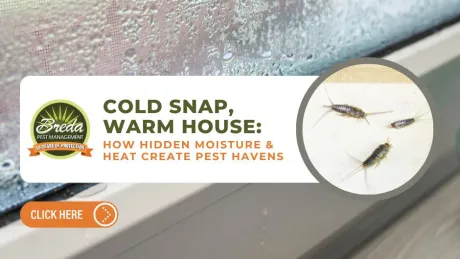There are more than 3,500 species of mosquitoes all over the world, 175 of which can be found in the United States. Texas hosts 85 species of these winged pests (the most in the country) with Florida following as a close second (80 identified species). Georgia has 58 known mosquito species. In our many years of experience as a successful Atlanta pest control company, we’ve controlled hundreds of mosquito populations all over the Peach State. We have also amassed quite a trove of information about mosquitoes and how to deal with them. Below are some of the most practical ways of dealing with mosquitoes.
Mosquitoes Can Smell Your Musk
Blood-sucking mosquitoes (not all fall under this classification) have receptors on their antennae that detect the carbon dioxide we release every time we exhale. Moreover, humans exude more than 300 natural chemical odors (in addition to the scent of lotions and perfumes) that attract mosquitoes. The chemical released by humans when they sweat (octenol) is particularly alluring to them. Since you cannot hold your breath the entire time you are outdoors or change your body chemistry, the best way to protect yourself from mosquitoes is to use a mosquito repellent.
Diethyltoluamide
More popularly referred to as DEET (actually a brand name), this effective insect repellent carries the endorsement of the CDC (Center for Disease Control). Mosquitoes avoid this substance because they simply do not like its smell. A product made with 10 percent DEET is good for up to 90 minutes of mosquito-free outdoor time. Recently, two other repellants have been approved by the CDC – lemon-eucalyptus oil and picaridin, a synthetic compound that blocks mosquitoes from sensing their prey.
Bug Zappers and Insecticides
Less than 1 percent of insects killed by bug zappers are mosquitoes. Studies have also shown that electronic insect-repelling devices are ineffective against mosquitoes and other biting insects. Permethrin is a common chemical used in many local mosquito control programs. It works by disrupting the central nervous systems of mosquitoes, killing them in the process. However, this chemical does not affect mosquito eggs and larvae.
Natural Population Control
Gambusia, or mosquito fish, is used in many parts of the world to control escalating mosquito populations. The fish feed on mosquito larvae. Dragonflies also prey on mosquitoes and releasing them in bulk quantities can help tame the mosquito population in certain areas. Certain types of commercially produced bacteria are also sometimes used to counter a potential mosquito infestation. They are added to water where mosquito larvae live and produce proteins that turn into toxins once they are ingested by the larvae.
For a wide range of efficient and effective pest control services, including residential and commercial pest and termite inspection, call us. We are the Atlanta bug control company you can trust to give you a safe, healthy and pest-free environment.



